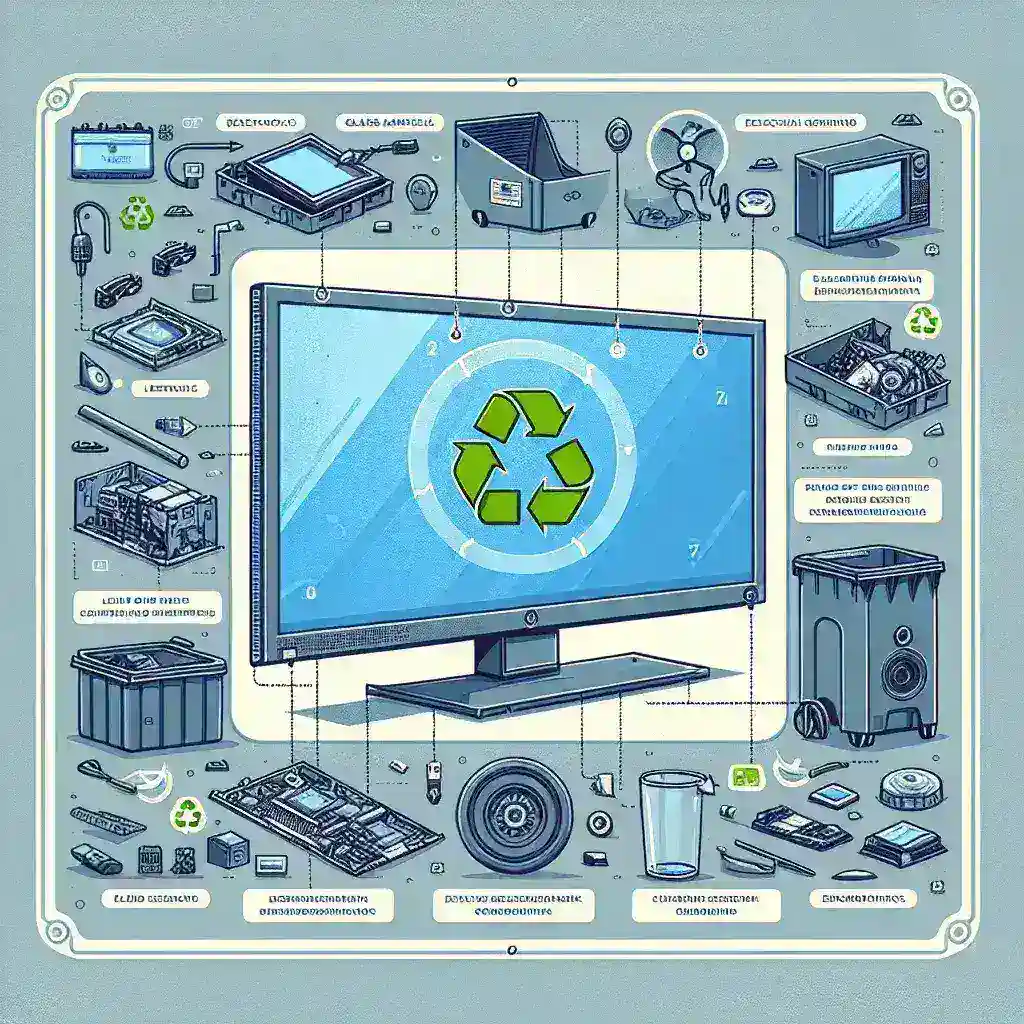Recycling old electronics, including plasma monitors, is a critical aspect of environmental conservation and sustainability. As technology evolves rapidly, electronic waste (e-waste) becomes a growing concern due to its potentially hazardous materials. Here’s a comprehensive guide on how to recycle an old plasma monitor responsibly.
Understanding the Importance of Recycling Plasma Monitors
Plasma monitors contain various materials that can be harmful to the environment if not disposed of properly. These components include lead, mercury, cadmium, and other toxic substances. Recycling not only helps in managing these hazardous materials but also allows for the recovery of valuable materials such as metals, which can be reused.
| Component | Material | Environmental Impact |
|---|---|---|
| Screen | Glass, Phosphor | Toxic if improperly disposed |
| Circuit Boards | Copper, Gold, Lead | Resources and pollution |
| Plastics | Various Plastics | Non-biodegradable |
| Wires | Copper, PVC | Energy-intensive to produce |
| Backlights | Mercury | Highly toxic |
Steps to Recycle Your Old Plasma Monitor
1. Assess the Condition of the Monitor
Before taking any further steps, determine if your plasma monitor is still functional. If it works, consider donating it to someone in need or offering it through platforms like Freecycle, craigslist, or community groups. Reusing is always a better option than recycling.
2. Research Local E-Waste Programs
Check with your local municipality for electronic waste recycling programs or collections. Many cities and towns offer free e-waste drop-off events or have designated facilities where you can bring your old electronics.
3. Use Manufacturer Take-Back Programs
Some electronics manufacturers have take-back programs that allow you to return obsolete devices for recycling. Brands like LG, Samsung, and Panasonic have such programs that accept their own products for responsible recycling. Check the manufacturer’s website for details.
4. Drop Off at E-Waste Recycling Centers
Specialized e-waste recycling centers accept a wide range of electronic items. These centers are equipped to disassemble, sort, and properly recycle materials found in plasma monitors. Use online resources to find an e-waste recycling center near you.
5. Utilize Retailer Recycling Programs
Many retailers, such as Best Buy and Staples, offer recycling programs where you can drop off your old electronics. These stores typically accept various types of e-waste, including monitors, and ensure they are recycled in an environmentally friendly manner.
Preparing Your Plasma Monitor for Recycling
1. Remove Personal Data
If your plasma monitor has any stored data, be sure to remove it before recycling. This is especially important for smart monitors with internet connectivity and storage capabilities. Perform a factory reset to wipe all personal information.
2. Disassemble Removable Parts
Remove any detachable parts such as stands, cables, and accessories. These parts may have separate recycling streams and help ease the recycling process.
3. Pack the Monitor Properly
To prevent any injury or damage during transportation, pack the monitor securely. Use bubble wrap or other protective materials to cushion the monitor and place it in a sturdy box.
4. Label the Package
If you’re mailing the monitor to a recycling facility, label the package accordingly. Clearly mark it as “E-Waste” or “For Recycling” to ensure proper handling.
The Environmental Impact of Not Recycling
Failing to recycle e-waste like plasma monitors can have severe environmental consequences. Components like mercury, lead, and cadmium can leach into soil and water supplies, posing significant health risks. Furthermore, e-waste takes up valuable landfill space and contributes to pollution and resource depletion.
Conclusion: Taking Responsibility for E-Waste
Recycling your old plasma monitor is a responsible step towards environmental protection. By understanding the hazardous materials involved and opting for proper disposal methods, you contribute to a sustainable future. Make use of local recycling programs, manufacturer take-back services, and retailer initiatives to ensure your obsolete technology is recycled correctly.
Remember, every effort counts. Whether you donate, recycle, or repurpose, you’re making a difference by keeping dangerous materials out of landfills and supporting the recycling loop. Act responsibly and dispose of your e-waste in an environmentally friendly way.



